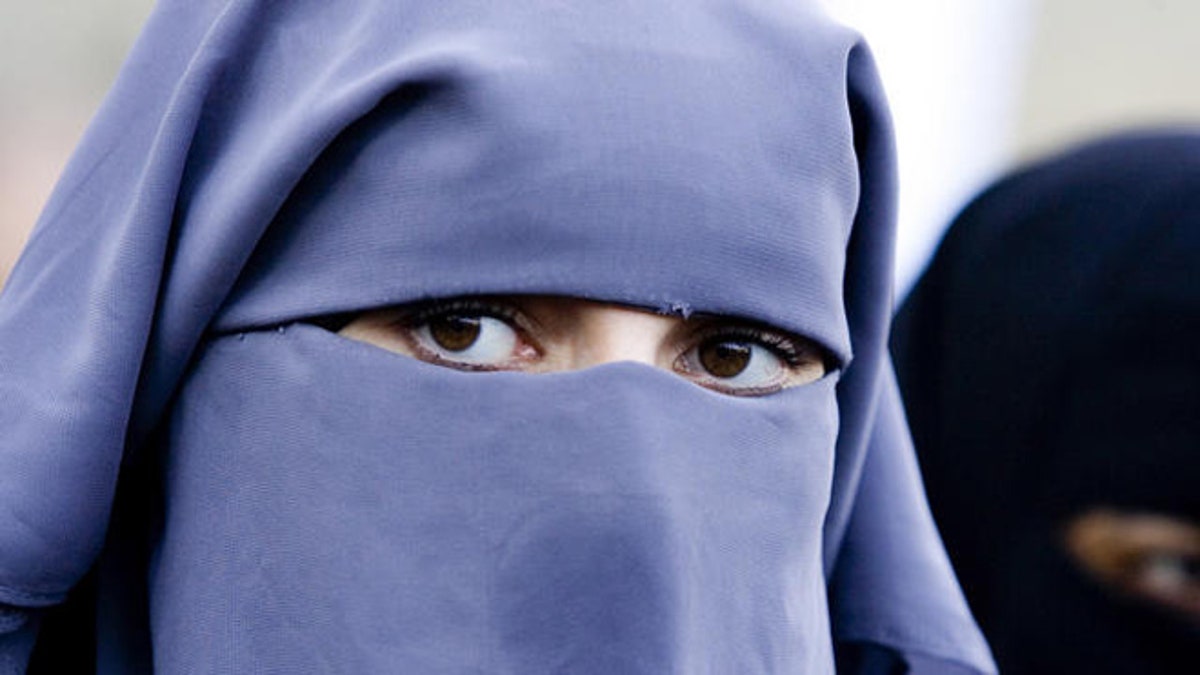
Unidentified women wearing a niqab during a demonstration of about two dozen Muslim women outside the Dutch parliament against a proposed ban on the burqa, the head-to-toe Islamic robe, in The Hague, Netherlands, Thursday, Nov. 30, 2006. Several protesters wore long robes and veils exposing only their eyes, known as a niqab. "We live in a free country and the government cannot tell us what to do with our religion," protest organizer Ayse Bayrak told The Associated Press. Hard line Immigration Minister Rita Verdonk is drawing up legislation banning the burqa and other clothes that cover the face in public places. (AP Photo/ Fred Ernst) ((AP Photo/ Fred Ernst))
Foz do Iguaçu, Brazil – The Brazilian city of Foz do Iguaçu, situated on the border with Paraguay and Argentina, has had a thriving Muslim immigrant community since the 1960s. Currently, the midsized town has around 20,000 Muslims out of 255,000 total inhabitants, so the sight of a woman with her face covered is common place in the region.
However, a recent proposal from the city's Board of Aldermen has created a controversial debate.
The board approved a new law and sent a proposal to Brazilian national authorities to allow an exception for Muslim women to take pictures for documents such as driver's license, national ID, and passports without removing the veil for the shot.
The language for photos in these documents in Brazil mentions that ears and a part of neck and shoulders should appear in the photos. A similar rule applies for pictures for a U.S. visa application in the U.S. consulates all over Brazil or at U.S. the embassy in Brasília.
The case of Ahlam Abdul El Saifi drew national attention around Brazil when she refused to remove her hijab (the word for veil in Arabic) for her driver’s license photo in the city of São Bernardo do Campo, in the state of São Paulo. The local Department of Traffic at the time affirmed that they could only follow the rules of the state.
According to Neoclair Santo Silvestrini, from a local Department of Traffic branch, the decision was an “absurd”, but not discriminatory action.
“Probably the person responsible feared of being punished,” said Silvestrini
The case mobilized the Muslim community in Foz do Iguaçu to demand for religious rights.
“The hijab is not a fantasy. It is part of a mandatory dressing of the Muslim women. It is really obligatory for our religion,” said Mohsin Alhassani, director of the Mosque Omar Ibn al Kattab from Foz do Iguaçu and the most prominent Muslim leader in the community.
Neiva Schaffer, a long-time Muslim resident of Foz do Iguaçu, complained about the policy. “In this case your identity is upside down. You feel terribly embarrassed”, she told TV Globo's Jornal Nacional.
Federal Police officers in Brazil are accepting the exception for Muslim women when issuing passport photos. “It is allowed without any major problem, but of course the only requirement is that their face should appear clearly”, explained Guilherme Biagi, a Federal Police officer assigned in the state of Paraná.
The Brazilian National Institute of Identification and the Department of Traffic has 30 days to respond the request made by Foz do Iguaçu's Board of Aldermen.








































